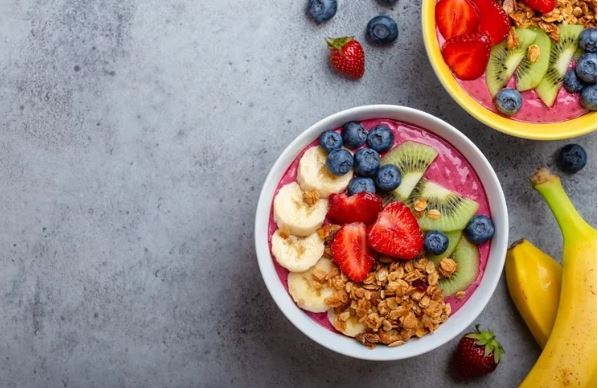Lifestyle
6 Brazilian fruits that can fight chronic diseases

Those looking for tips to improve gut health and metabolism, this article is for you, as it highlights five foods that can enhance digestion and promote gut health. From Greek yoghurt’s probiotics, ginger’s anti-inflammatory properties, and fibre-rich foods, there are several such foods that can
These fruits have special properties that can improve gut health and might help fight NCDs. The good things in these fruits can affect how our body absorbs energy, how our immune and hormone systems work, and how our body reacts to inflammation. Fruits like acerola, açaí, and guava from Brazil have lots of good components like fibers and special compounds that can change our gut bacteria in a good way. This can help keep our gut and body healthy.
How do the fruits help?
Brazilian native fruits like açaí, acerola, guava, jabuticaba, baru, buriti, juçara, and passion fruit are packed with special components that are really good for the body. These components can make the gut (the digestive system) healthier by fighting inflammation and harmful molecules in your body. They can also make it easier for our body to use insulin, which helps manage sugar levels, and handle fats better.
These fruits are abundant in dietary fibers that help in absorbing fats and carbohydrates, and they keep your intestines moving smoothly while reducing your appetite. Also, they’re loaded with phenolic compounds that fight inflammation, kill bad bacteria, and act as powerful antioxidants.
The fruits that help
1. Acerola – Acerola is a fruit that comes from tropical areas, especially Brazil. When we eat acerola, there are parts of it that usually go to waste. But scientists have found that these leftover parts, called by-products, can actually be really good for our gut, which is our digestive system.
3. Açaí – native to the Amazon rainforest, possesses anthocyanins that impact colonic fermentation. The fermentation process results in changes to specific bacterial communities and the production of organic acids. The phenolic compounds found in açaí exert antioxidant effects that protect DNA. Furthermore, studies involving an açaí extract rich in anthocyanins showcased its effectiveness in addressing obesity-related concerns in mice.
4. Baru – Research indicates that Baru pulp displays promising prebiotic properties, serving as a suitable carbon source for specific probiotic strains and influencing pH and the production of organic acids.
Studies conducted through in vitro fermentation demonstrate that baru pulp promotes the growth of beneficial gut bacteria. This effect could be attributed to the substantial fiber content and phenolic compounds present in the pulp.






